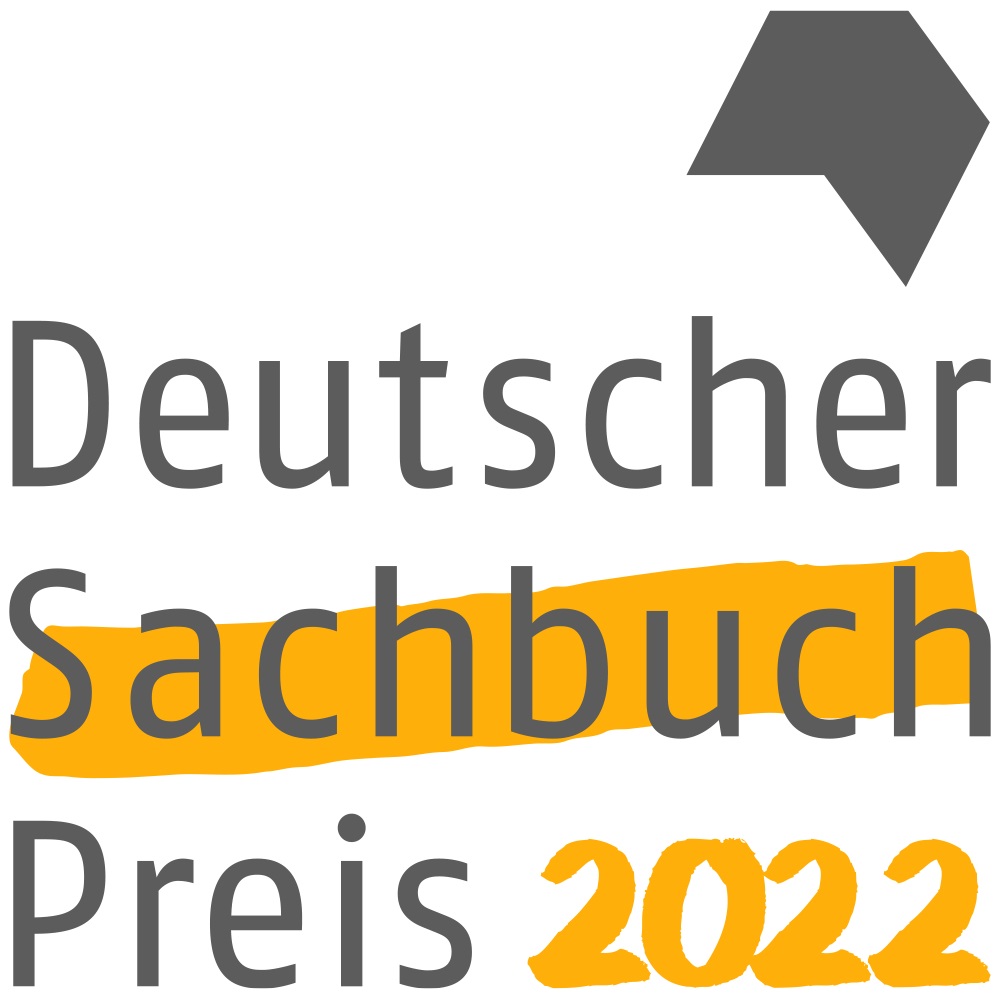Which title will be non-fiction book of the year?
The Stiftung Buchkultur und Leseförderung des Börsenvereins des Deutschen Buchhandels (German Publishers and Booksellers Association’s Foundation for Book Culture and the Promotion of Reading) will present the second German Non-Fiction Prize at the Humboldt Forum. The jury selecting the winning title comprises seven experts from the fields of non-fiction criticism, journalism, science, culture and the book trade. The prize is awarded to an outstanding German-language work of non-fiction that promotes social debate.
The aim of the German Non-Fiction Prize is to promote awareness of non-fiction as a basis for the dissemination of knowledge and the formation of substantiated opinions, as well as a barometer of, and catalyst for, public discourse.
This year, the Humboldt Forum will once again host the award ceremony, and the public are invited to the pre-award event: In Conversation With the Nominees on the preceding day.
The 2022 jury:
Stefan Koldehoff (cultural editor, Deutschlandfunk)
Dr. Klaus Kowalke (Lessing & Kompanie bookshop)
Tania Martini (cultural editor, Deutschlandfunk, DIE ZEIT
Prof. Dr. Meron Mendel (Frankfurt University of Applied Sciences, Director of the Anne Frank Educational Centre)
Dr. Jeanne Rubner (TU München)
Denis Scheck (literary critic, TV host)
Prof. Dr. Barbara Stollberg-Rilinger (Wissenschaftskolleg zu Berlin)
On Sunday 29/05/2022, the Humboldt Forum warmly invites you to the German Non-Fiction Prize Pre-Award Event. In Conversation With the Nominees: an opportunity to listen to the nominated authors on the eve of the award ceremony, and to get involved in the discussion. This event will include German Sign Language (DGS) interpretation. Hosted by: Shelly Kupferberg, Hadnet Tesfai and Jörg Thadeusz.
You can follow the live streamed award ceremony from the Humboldt Forum on Monday 30/05/2022.
Patron of the German Non-Fiction Prize is Minister of State for Culture Claudia Roth. The main sponsor of the Prize is the Deutsche Bank Stiftung, and the award is supported/promoted by the Stiftung Humboldt Forum im Berliner Schloss.
Live stream
THE NOMINATED BOOKS (in alphabetical order):
Am Rande der Glückseligkeit. Über den Strand (Berenberg Verlag, May 2021)
Bettina Baltschev begins her journey to the beaches of Europe on a North Sea beach. From eight beaches in eight countries, she takes excursions into the present and the history of a place of longing that is the last refuge of many a person. She tells of true and fictitious, happy and tragic fates on the beach – on the edge of our world.
Die Frauen von Belarus. Von Revolution, Mut und dem Drang nach Freiheit (Berlin Verlag, July 2021)
Peaceful demonstrators in Belarus defied the violent regime: Alice Bota tells the stories of the three leading protagonists who became politicians against their will, Svetlana Tikhanovskaya, Maria Kolesnikova and Veronika Zepkalo. The portrait of an uprising.
Das deutsch-russische Jahrhundert. Geschichte einer besonderen Beziehung (Rowohlt Verlag, March 2022)
In the 20th century, the German-Russian relationship played a key role – in all its ambivalence, contradictoriness and experience of violence. Stefan Creuzberger tells the story of this tense relationship in an era marked by dramatic caesurae, interactions and changes.
Erzählende Affen. Mythen, Lügen, Utopien – wie Geschichten unser Leben bestimmen (Ullstein Verlag, October 2021)
A strong story can save the world – or destroy it. It can decide elections, save lives, but also trigger wars and cement injustice. Samira El Ouassil and Friedemann Karig trace this ambivalent power on the basis of important narratives from antiquity to the present. And they show which narratives endanger us today and why we need new ones.
Das rationale Tier. Eine kognitionsbiologische Spurensuche (Suhrkamp Verlag, December 2021)
Can rationality and consciousness be granted to non-human creatures? Ludwig Huber takes stock of the current state of research on animal thinking and explains with the help of the most important experiments and observations what animals can do. These new scientific findings demand a revision of our current attitude towards animals.
Die Hohenzollern und die Nazis. Geschichte einer Kollaboration (Propyläen Verlag, September 2021)
For over 100 years, the “heads” of the Hohenzollern family have repeatedly collaborated with lawyers, journalists and PR consultants, with whose help they polished up the family’s public image. Stephan Malinowski analyzes these self-representations in a historical narrative spanning three generations up to the present day.
Sortiermaschinen. Die Neuerfindung der Grenze im 21. Jahrhundert (Verlag C.H.Beck, August 2021)
The cosmopolitan dream of a borderless world has been deeply flawed in recent years. But was it ever realistic in the first place? Steffen Mau shows that borders in the age of globalization have not been made more open from the very beginning, but have been transformed into powerful sorting machines. While a small circle of privileged people is allowed to travel almost everywhere today, the vast majority of the world’s population continues to be systematically left out.
Fluchtpunkte der Erinnerung. Über die Gegenwart von Holocaust und Kolonialismus (Carl Hanser Verlag, January 2022)
What distinguishes racism from anti-Semitism? Is it possible to commemorate the victims of the Holocaust and colonialism without relativizing history? In Hannah Arendt, Edward Said and others, Natan Sznaider finds ideas and arguments to advance the discussion about the relationship between colonial crimes and the Holocaust.
